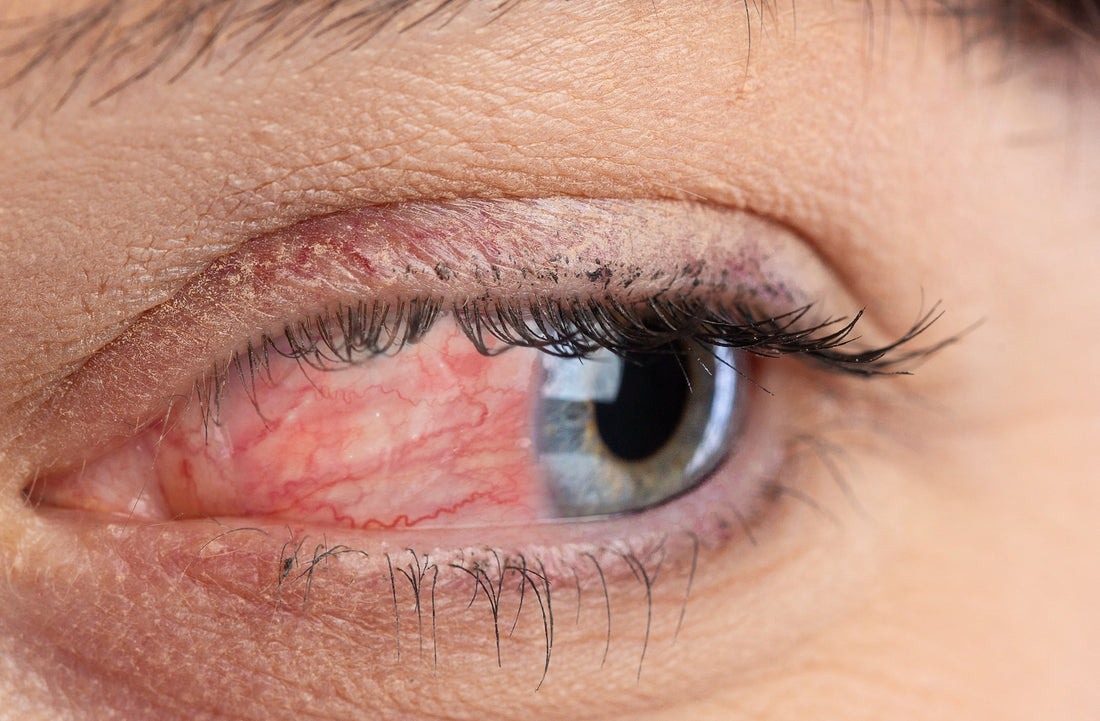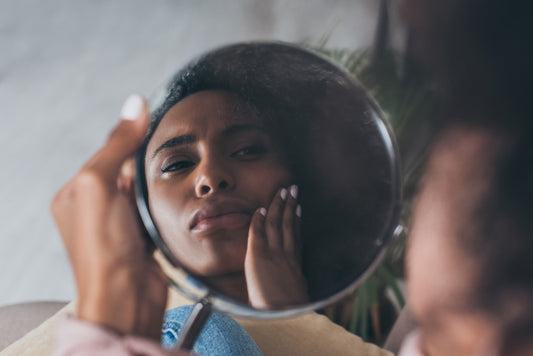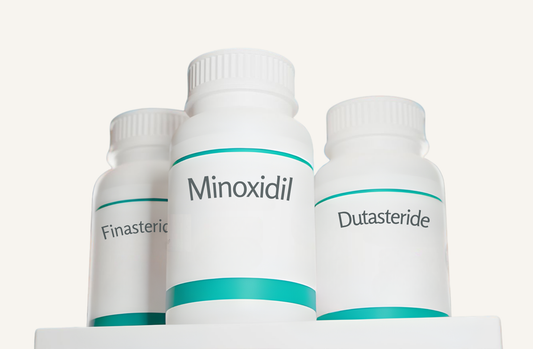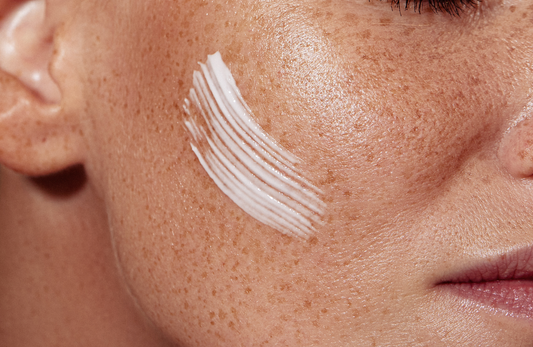Ocular Rosacea: What You Need to Know
If you live with red, itchy, or swollen eyes or regularly get styes, don’t ignore it. While these symptoms may be the result of environmental allergies or a simple clogged tear gland, they could be a sign of a chronic condition called ocular rosacea.
What is Ocular Rosacea?
Ocular rosacea, a subtype of rosacea, causes inflammation and burning of the eyes and eyelids. Rosacea is a chronic skin condition that affects mostly women between 30-50 years old.1 Up to 58 percent of people with rosacea have associated eye involvement, affecting men and women equally, however, 20 percent of ocular rosacea cases do not present skin symptoms prior to diagnosis.2,3 That means you can have ocular rosacea if you don’t have rosacea symptoms.
Ocular Rosacea Symptoms & Causes
Ocular rosacea symptoms can affect all parts of your eyes, including eyelids. You may notice one or more of the following symptoms on a regular basis.
- Red, itchy, burning, or watery eyes
- Grittiness or feeling like you have something in your eye
- Dry eye
- Sensitivity to light
- Inflamed eyelids (blepharitis)
- Visible fine veins in your eyelids near your lashes
- Recurrent lid infections like styes or chalazions
- Inflamed corneas, which can lead to blurred eyesight or vision loss
There isn’t a known cause of ocular rosacea, but it might be associated with one or more of the following:
- Heredity: If one or both of your parents have rosacea, there is a higher chance that you will have it
- Bacterial infection: The helicobacter pylori bacteria, which commonly affects the gut, is also known to cause eye inflammation.
- Blocked eyelid glands: A condition called meibomian gland dysfunction means that your eyelid glands aren’t secreting enough oil to keep your eyes from drying out.
- Eyelash mites: While everyone has them, people with rosacea tend to have more eyelash mites than normal which may cause inflammation.
How is Ocular Rosacea Diagnosed?
There are no specific tests to diagnose ocular rosacea. Instead, your doctor relies on your medical history and observations from eye exams to determine the cause of your symptoms.
Ocular rosacea is diagnosed when you exhibit at least two symptoms, including rosacea skin symptoms.
There are three grades of ocular rosacea:
- Grade 1: Mild itching, burning, and grittiness of the eyes
- Grade 2: Burning, stinging, or crustiness of the eyes and lids
- Grade 3: Pain, light sensitivity, or blurred vision
How to Treat Ocular Rosacea
Ocular rosacea treatment is determined by the severity of your disease. Treatments are used to relieve symptoms but there is no cure for this chronic condition. It is important to treat your symptoms because if left untreated, ocular rosacea can lead to permanent vision loss. It is always recommended to see a specialist to get a proper diagnosis and treatment plan.
First-line treatment includes good lid hygiene.
- Wash your eyelids with warm water or baby shampoo twice a day.
- Use artificial tears as needed to relieve dry eyes.
- Avoid makeup when your eyes are inflamed. If you do wear makeup, choose non-oily or fragrance-free options.
- Don’t wear contacts when your eyes are inflamed, especially if you have dry eyes.
- Avoid any particular triggers for your rosacea, like spicy food or alcohol.
For more severe symptoms, your doctor could prescribe an oral antibiotic, like doxycycline, tetracycline, minocycline, azithromycin, or erythromycin to treat infection and inflammation. Inflammation is usually treated with a lower dose for longer periods of time.
Topical steroids may be prescribed if inflammation, corneal involvement, or chronic eye irritation isn’t resolved by other antibiotics. They should only be used for a short time since long-term steroid use can lead to other eye issues like glaucoma or cataracts.
An alternative to treating inflammation with steroids is topical cyclosporine, an immunosuppressant medication, particularly to help with dry eye. It is safer than steroids for long-term use.
Some studies show that Omega-3 fatty acids can ease dry eye symptoms.
Surgery is used to remove chalazions or styes that don’t respond to other treatments.
Avoiding Ocular Rosacea Flare-ups
Ocular rosacea shares the same triggers as rosacea. If you have both ocular rosacea and rosacea, the same things will cause a flare-up in both your skin and your eyes. Common triggers include:
- Spicy foods
- Alcohol
- Sunlight, wind, or extreme temperatures
- Extreme emotions, particularly stress, anger, or embarrassment
- Strenuous exercise
- Hot baths or saunas
When to Call the Doctor
See your primary care physician if your eyes are burning, red, or itching. They will refer you to see your optometrist or ophthalmologist if they suspect ocular rosacea.
You should also visit your eye doctor if your ocular rosacea symptoms worsen or you have more frequent flare-ups. Tell them if you have any new symptoms or triggers.
Go to the emergency room if you have pain, dizziness, loss of vision, or blurry or double vision.
Living with Ocular Rosacea
Although ocular rosacea can’t be cured, regular treatment and good eye hygiene can keep symptoms at bay and the disease from progressing. Work with your doctor to set up the right disease management routine for you.
References:
-
https://www.mayoclinic.org/diseases-conditions/ocular-rosacea/symptoms-causes
-
https://www.rosacea.org/rosacea-review/2004/winter/ocular-rosacea-can-threaten-sight
-
https://www.touchophthalmology.com/wp-content/uploads/sites/16/2017/11/US-OPHTH-10.2_113-8_1.pdf
-
https://my.clevelandclinic.org/health/diseases/22265-ocular-rosacea
-
https://www.college-optometrists.org/clinical-guidance/clinical-management-guidelines/ocularrosacea
-
https://eyewiki.aao.org/Ocular_Rosacea
-
https://www.rosacea.org/patients/all-about-rosacea
-
https://classicvisioncare.com/blog/all-about-ocular-rosacea/
-
https://www.rosacea.org/blog/2015/january/ocular-rosacea-what-your-eyes-may-be-trying-to-tell-you
-
https://dermnetnz.org/topics/ocular-rosacea
-
https://modernod.com/articles/2021-july-aug/a-basic-guide-to-ocular-rosacea





